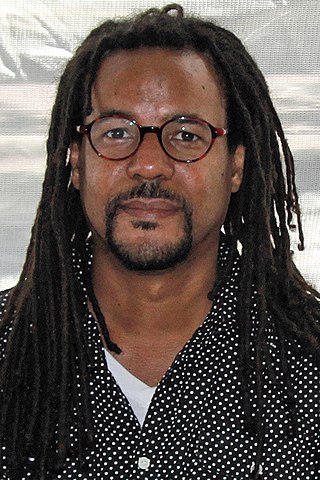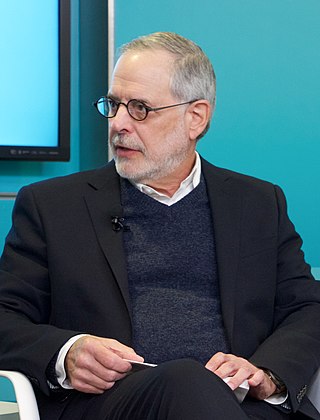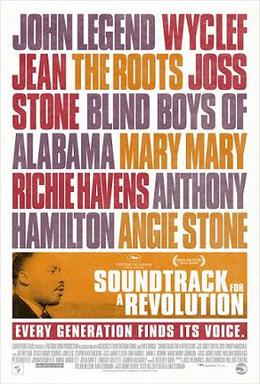
Thomas Coraghessan Boyle is an American novelist and short story writer. Since the mid-1970s, he has published nineteen novels and more than 150 short stories. He won the PEN/Faulkner Award in 1988, for his third novel, World's End, which recounts 300 years in upstate New York.

Eric Michael Bogosian is an American actor, playwright, monologuist, novelist, and historian. Descended from Armenian-American immigrants, he grew up in Watertown and Woburn, Massachusetts, and attended the University of Chicago and Oberlin College. His play Talk Radio, was a finalist for the 1987 Pulitzer Prize for Drama. Bogosian also wrote and starred in the 1988 film adaptation, for which he won a Silver Bear at the Berlin International Film Festival.

Underground Atlanta is a shopping and entertainment district in the Five Points neighborhood of downtown Atlanta, Georgia, United States, near the Five Points MARTA station. It is currently undergoing renovations. First opened in 1969, it takes advantage of the viaducts built over the city's many railroad tracks to accommodate later automobile traffic.

Arch Colson Chipp Whitehead is an American novelist. He is the author of nine novels, including his 1999 debut The Intuitionist; The Underground Railroad (2016), for which he won the 2016 National Book Award for Fiction and the 2017 Pulitzer Prize for Fiction; and The Nickel Boys, for which he won the Pulitzer Prize for Fiction again in 2020, making him one of only four writers ever to win the prize twice. He has also published two books of nonfiction. In 2002, he received a MacArthur Fellowship.

Ahmir K. Thompson, known professionally as Questlove, is an American drummer, record producer, disc jockey, filmmaker, music journalist, and actor. He is the drummer and joint frontman for the hip-hop band the Roots. The Roots have been the in-house band for The Tonight Show Starring Jimmy Fallon since 2014, after having fulfilled the same role on Late Night with Jimmy Fallon. Questlove is also one of the producers of the 2015 cast album of the Broadway musical Hamilton. He has also co-founded of the websites Okayplayer and OkayAfrica. He joined Clive Davis Institute of Recorded Music at New York University as an adjunct professor in 2016, and hosts the podcast Questlove Supreme.

Eric Foner is an American historian. He writes extensively on American political history, the history of freedom, the early history of the Republican Party, African American biography, the American Civil War, Reconstruction, and historiography, and has been a member of the faculty at the Columbia University Department of History since 1982. He is the author of several popular textbooks, such as the Give Me Liberty series for high school classrooms. According to the Open Syllabus Project, Foner is the most frequently cited author on college syllabi for history courses. According to historian Timothy Snyder, Foner is the first to associate the storming of the Capitol on January 6, 2021 with section three of the Fourteenth Amendment to the Constitution.

Lourdes Portillo was a Mexican film director, producer, and writer. The political perspectives of Portillo's films have been described as "nuanced" and versed with a point of view balanced by her experience as a lesbian and Chicana woman. Portillo films have been widely studied and analyzed, particularly by scholars in the field of Chicano studies.

Neal Gabler is an American journalist, writer and film critic.
Jeremy Marre was an English television director, writer and producer who founded Harcourt Films and made films around the world. Much of his work focused on musical subjects.
Quilts of the Underground Railroad describes a controversial belief that quilts were used to communicate information to African slaves about how to escape to freedom via the Underground Railroad. It has been disputed by a number of historians.

Nǃai, the Story of a ǃKung Woman is a documentary film by ethnographic filmmaker John Marshall.
Malcolm X: Make It Plain is a 1994, English language documentary by PBS about the life of Malcolm X, or El-Hajj Malik El-Shabazz.

Soundtrack for a Revolution is a 2009 documentary film written and directed by Bill Guttentag and Dan Sturman. This documentary traces the story of the Civil Rights Movement and the gains achieved by young African-American activists with an emphasis on their use of the power of music. Soundtrack for a Revolution had its international premiere at the Cannes Film Festival and its North American premiere at the Tribeca Film Festival. Soundtrack for a Revolution was selected by the Academy of Motion Picture Arts and Sciences as part of the Oscar shortlist for the Documentary Feature category of the 82nd Academy Awards. Guttentag and Sturman were nominated for Best Documentary Screenplay from the Writers Guild of America. The film has screened at numerous festivals including Cannes, Tribeca, IDFA and Sheffield Doc/Fest.
Richard Rowley is a documentary filmmaker. His films and TV shows have received three Emmy awards, an Oscar nomination, and other awards and nominations, as well as recognition at film festivals around the world.
Jeremy Brecher is a historian, documentary filmmaker, activist, and author of books on labor and social movements.
Connie Field is an American film director known for her work in documentaries.

The Underground Railroad is a historical fiction novel by American author Colson Whitehead, published by Doubleday in 2016. The alternate history novel tells the story of Cora, a slave in the Antebellum South during the 19th century, who makes a bid for freedom from her Georgia plantation by following the Underground Railroad, which the novel depicts as an actual rail transport system with safe houses and secret routes. The book was a critical and commercial success, hitting the bestseller lists and winning several literary awards, including the Pulitzer Prize for Fiction, the National Book Award for Fiction, the Arthur C. Clarke Award, and the 2017 Andrew Carnegie Medal for Excellence. A TV miniseries adaptation, written and directed by Barry Jenkins, was released in May 2021.

Barry Jenkins is an American filmmaker. After making his filmmaking debut with the short film My Josephine (2003), he directed his first feature film Medicine for Melancholy (2008) for which he received an Independent Spirit Award nomination for Best First Feature. He is also a member of The Chopstars collective as a creative collaborator.
Sheldon Renan is an American writer and filmmaker. His first book, An Introduction to the American Underground Film, was published in America by Dutton in 1967. In England, it was printed by Studio Vista (1968) as The Underground film. An introduction to its development in America. It was the first book about underground film. He is a graduate of Yale University and a Rockefeller Grant recipient.
Orlando Bagwell is an American film director. His films focus on the history of African Americans in the United States. He has won multiple awards.












